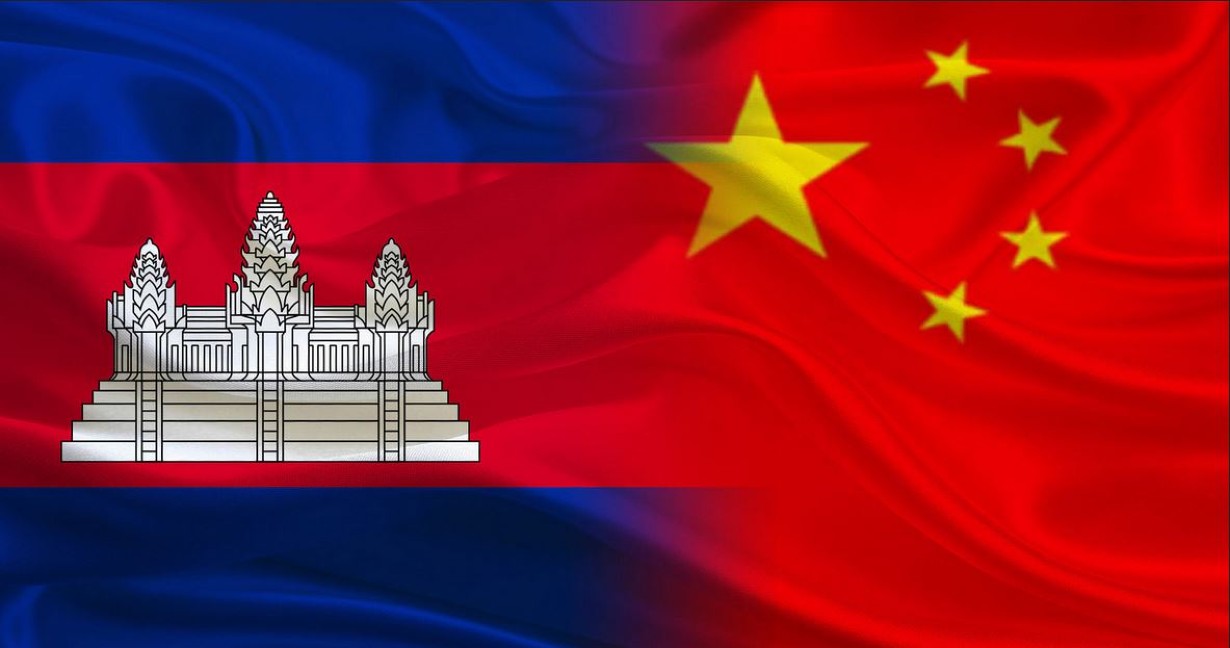The largest-ever joint military exercise that Cambodia and China began on Wednesday dispels the notion that Cambodia would continue to show its relatively non-aligned foreign policy, as shown in its neutral stand in the Ukraine War.
Sitting at the heart of Southeast Asia, Cambodia is visibly moving closer to China, endorsing Chinese global agendas, and serving China’s regional interests.
The ongoing joint military exercise involves advanced Chinese military hardware, including artillery, warships, and robot battle dogs.
Cambodia has long been a staunch ally of China, receiving billions of dollars in investments. Washington has voiced concerns that Beijing is using a Cambodian naval base it renovated on the Gulf of Thailand to expand its influence in the region.
The Royal Cambodian Armed Forces (RCAF) said in a statement that nearly 900 Chinese military personnel and more than 1,300 Cambodian soldiers are participating in the drills, which will last until May 28.
The statement said the drills are supposed to feature advanced Chinese military hardware, including armoured vehicles, helicopters, warships, reconnaissance drones, and robot battle dogs.
The annual exercises were to “develop deeper ties and cooperation” between the two armies. RCAF spokesman Thong Solimo told AFP that the exercises were bigger than last year in terms of both personnel and equipment.
He said a large Chinese naval vessel, the Changbai Shan, docked at Cambodia’s Beijing-renovated Ream Naval Base on Monday with military equipment for the drills.
According to Cambodian political analyst Ou Virak, “China does want to flex its muscle” and to send a message that “it’s a superpower” through the exercises, dubbed Golden Dragon.
“Definitely China is trying to… grow its influence within the region,” he said.
“Beyond just flexing the muscle, it needs to build confidence amongst its partners to say to the partners that China is growing, China is expanding, China is also getting stronger, both in size but also in technological advancement, as well as military might,” Ou Virak added.
Cambodia is also expected to receive two warships from China.
The first Golden Dragon drills were held in 2016, and in early 2017, Cambodia scrapped a similar joint exercise — “Angkor Sentinel” — which had been held for the preceding seven years with US forces.
The drills follow a two-day visit by Chinese President Xi Jinping to Cambodia in April to deepen ties between the two countries.
The growing China factor has made some strategic elites reconsider their views that Cambodia would prefer to uphold international law and multilateralism as part of its ‘independent rules-based foreign policy’, free from external interference that serves the interests of its people and region.
These analysts were impressed by Cambodia’s “non-aligned approach” as the 2022 ASEAN chair to managing differences among members during one of ASEAN’s most tumultuous years.
Besides, since February 2022, Cambodia has co-sponsored UN General Assembly resolutions rejecting blatant violations of state sovereignty and the use of force by one state against another.
Cambodia did this, knowing pretty well that China supported Russia. Even otherwise, Cambodia has historical ties with Russia. In that sense, Cambodia’s UN votes rejecting the ongoing war in Ukraine represented a notable shift.
It is now obvious that Cambodia has too many geopolitical and geoeconomic constraints to move away from the Chinese influence beyond a point.
As it is, Cambodia supports the “One China” policy and is actively involved in China’s Belt and Road Initiative (BRI). Most importantly, it has blocked the ASEAN consensus to fight against China’s claim in the South China Sea.

In fact, nowhere does China’s growing economic and geopolitical influence reverberate as strongly across Southeast Asia as in Cambodia. China happens to be Cambodia’s largest foreign investor. Billions of dollars have poured into infrastructure projects, including roads, bridges, ports, and real estate ventures.
It is a different story that some of these investments often come with significant conditions that deepen Cambodia’s economic reliance on China. But it is important to note that Cambodia’s growing debt to China has tightened Beijing’s economic grip on the country.
Reportedly, over 35% of Cambodia’s external debt is owed to China, limiting its financial independence and giving Beijing leverage over key policy decisions.
This economic entanglement has obviously extended into the political sphere, where Cambodia has consistently aligned itself with China’s foreign policy objectives.
China has also supported the less-than-democratic regime in Cambodia. China’s political backing was clearly visible in the country’s 2017 crackdown on the opposition Cambodia National Rescue Party (CNRP). While Western nations condemned then-Prime Minister Hun Sen’s move to dissolve the opposition, China provided diplomatic and financial support, ensuring his continued rule.
When the West imposed sanctions over human rights violations, China stepped in with additional loans and investments, reinforcing Hun Sen’s grip on power and increasing Beijing’s sway.
Against this background, military cooperation between Beijing and Phnom Penh has strengthened over the years.
For the strategic elites in the region, there is a growing apprehension that the most important example to reflect the growing military collaboration is the Ream Naval Base, where China secretly funded upgrades, raising fears that Beijing aims to establish its first foreign military base in Southeast Asia.
Cambodia officially denies this, but satellite images and investigative reports suggest Chinese involvement in designing and constructing the base.
- With Inputs From AFP




